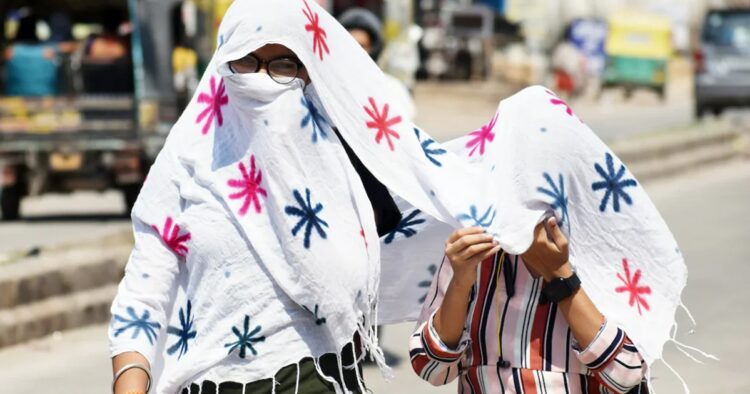The weather department has raised a red flag as northwestern Bharat braces for a severe heatwave over the next five days. Central and east Bharat are also on alert for scorching temperatures lasting up to three days.
Warm winds and high temperatures have swept through northern Bharat, with Delhi’s Najafgarh recording a blistering 47.6 degrees Celsius yesterday.
Rajasthan, Punjab, and Haryana are on high alert, marked in red by the India Meteorological Department. Residents and authorities are urged to take precautionary measures. Parts of eastern Rajasthan and western Uttar Pradesh are also advised to stay vigilant, marked in orange due to the expected high temperatures.
Heat wave to severe heat wave conditions likely to continue over plains of Northwest India during next 5 days and Heat wave conditions likely over East & Central India during next 3 days. pic.twitter.com/SfokHFu5DD
— India Meteorological Department (@Indiametdept) May 18, 2024
On Friday, temperatures soared above 45 degrees Celsius at 19 locations in Rajasthan, 18 in Haryana, eight in Delhi, and two in Punjab.
The criteria for a heatwave are met when temperatures reach at least 40 degrees Celsius in plains, 37 degrees in coastal areas, and 30 degrees in hilly regions, with a departure from normal of at least 4.5 notches. A severe heatwave is declared when the departure from normal exceeds 6.4 notches.
In contrast, Jammu and Kashmir, Ladakh, and Himachal Pradesh are expected to experience normal temperatures. However, Uttarakhand is anticipated to face hot and humid conditions.
Meanwhile, in southern Bharat, heavy to extremely heavy rainfall is forecasted until the 23rd, with particularly intense falls expected between the 19th and 21st of May. The southwest monsoon is also predicted to advance into the south Andaman Sea, parts of the Southeast Bay of Bengal, and Nicobar Islands around May 19th.
Climate scientists have issued a stark warning, indicating that heatwaves intensified by climate change are becoming increasingly frequent. As per a group of leading climate scientists, such heatwaves, which previously occurred once every 30 years, are now around 45 times more likely due to climate change.
These extreme weather events disproportionately affect impoverished communities across Asia, making life significantly more challenging.
The India Meteorological Department had previously alerted to the likelihood of extreme heat during the April-June period, coinciding with the ongoing seven-phase Lok Sabha elections, which are set to conclude on June 1st.
As temperatures continue to rise, authorities and residents are urged to prioritize safety measures to mitigate the impact of the heatwave.

















Comments